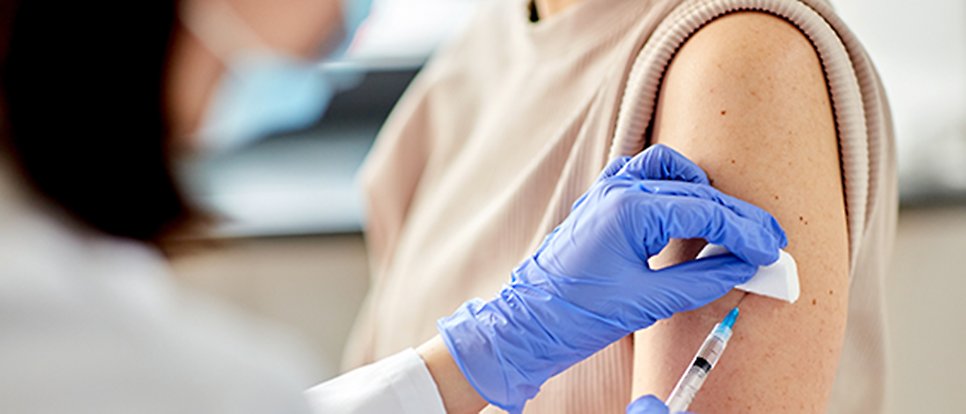Covid-19: Pre-booked appointments contributed to higher vaccination rates for people with lower cognitive ability

There was a big difference in how quickly different groups vaccinated themselves against covid-19. One of the explanations could be that people handle information and make decisions in different ways. A new study shows that among people with the highest cognitive ability, 80 percent had vaccinated themselves within 50 days. Among those with the lowest cognitive ability, it took 180 days to achieve the same vaccination rate.
– This is important knowledge for the future when authorities want to reach out widely to get the population to, for example, get vaccinated, or take other health measures. If we are to have equal care for everyone, we need to take into account people's different ways of handling information, says Oscar Erixson and Mattias Öhman, both researchers in Economics at IBF.
The study, which is now published in Journal of Health Economics, is based on results from tests of cognitive ability before general conscription. The study includes 750,000 men and 3,000 women born between 1962 and 1979. The test results, which are graded on a nine-point scale, have been compared with vaccination statistics from the Public Health Agency. The differences are large between individuals with the highest and lowest scores respectively on these tests of cognitive abilities. Among those with the highest results (group 9), 80 percent had already been vaccinated after 50 days, while the corresponding figure was only reached after 180 days among those with the lowest results (group 1).
– Most Western countries wanted the population to be vaccinated as soon as possible. It was seen early on that the vaccination rate varied quite a lot between different socio-economic groups. We wanted to investigate whether there was a connection with cognitive ability or whether it was something else that caused the differences, and made people hesitate to get vaccinated, says Oscar Erixon.
One example that stands out from the national statistics is Region Uppsala. When the priority groups were vaccinated, the region booked vaccination times for all individuals in the 50-59 age group. They received a letter inviting them to an appointment for vaccination, and all they had to do was show up. The result was a rapid and high vaccination rate even among those with lower cognitive ability. In Uppsala, it only took 40 days for that group to reach an 80 percent vaccination rate. It was thus 140 days faster than the vaccination rate at national level.
– Logging in to a web site yourself, finding an appointment, booking it, going there and getting vaccinated, was perhaps too many steps for some people. A simple measure, which pre-booked vaccination times proved to be, was a powerful tool in any case to speed up the vaccinations in both groups, says Mattias Öhman.
– It shows that part of the inequality in vaccination behavior can be remedied by designing the vaccination campaigns in a better way. Since it is known that the group with lower cognitive ability was also hit harder by covid-19, such a measure could probably contribute to a more equal health. A faster vaccination rate probably also contributes to slowing down the pandemic faster, says Oscar Erixson.
Article

The article in Journal of Health Economics is available through Open Access.
Cognitive ability, health policy, and the dynamics of COVID-19 vaccination
